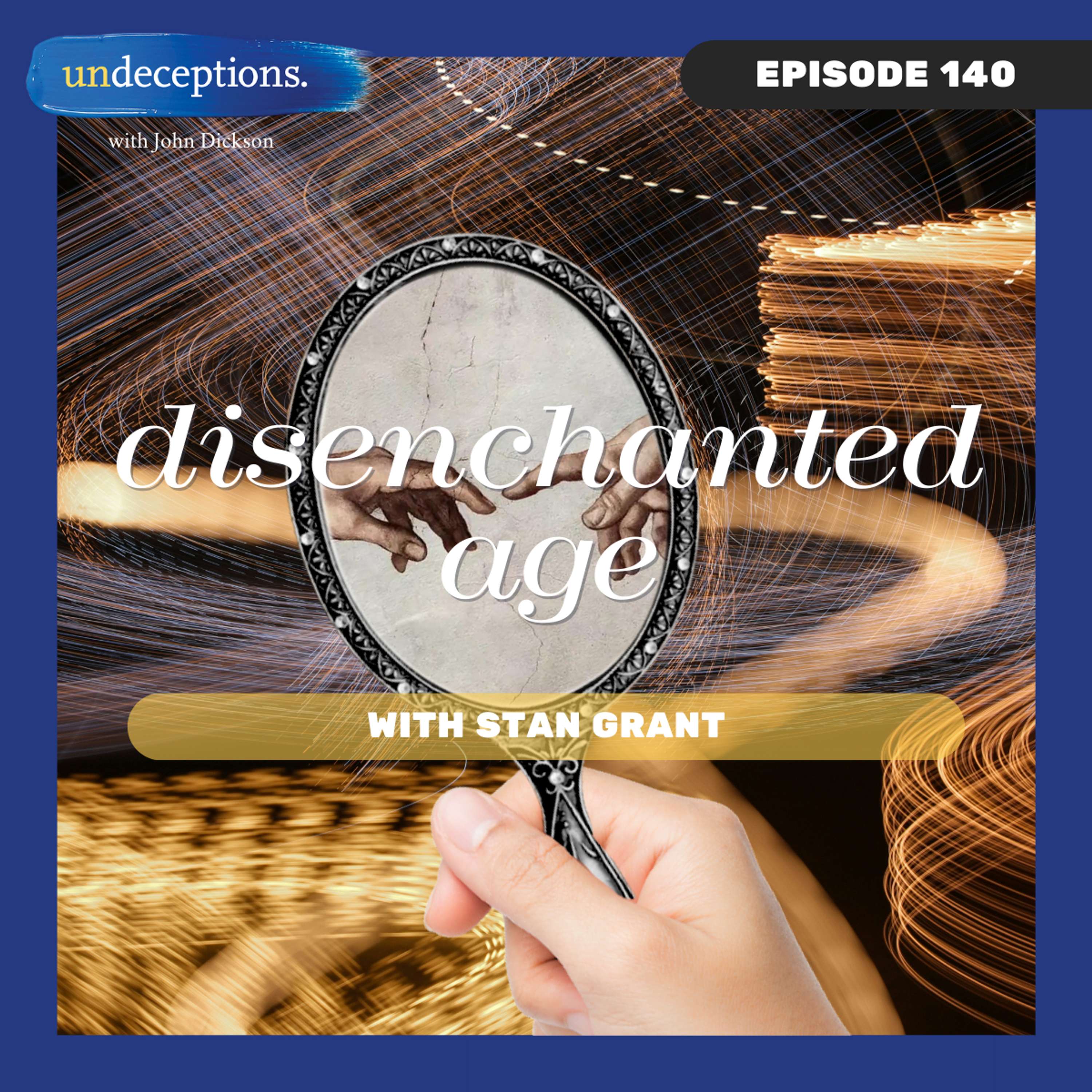
Disenchanted Age

Undeceptions with John Dickson
Deep Dive
Why did Stan Grant decide to step away from the media after the Voice to Parliament referendum?
He felt the media was part of the problem, thriving on conflict and not allowing space for meaningful dialogue. He believed the media lacked the language and love to handle the fragile spirits of the country.
What was the main takeaway for Stan Grant from the Voice to Parliament referendum?
Despite the 'no' vote, he found solace in the idea that if politics failed, what sustained First Nations people was God, country, kinship, and generosity. He emphasized the need to create silence to hear each other and find the words to speak again.
How did Stan Grant's upbringing shape his identity and career?
He grew up in a family of immense love, resilience, and faith, which deeply influenced his Wiradjuri identity and his understanding of God's presence in his life. This background, despite the hardships, provided a strong foundation for his later success in journalism and public life.
What moment in Stan Grant's journalism career made him realize he could succeed in the field?
During his early days as a cadet reporter, he was sent to cover a bushfire in Canberra. Despite never having done live reporting before, he trusted his instincts, found the fire, and delivered a live report. This moment taught him to trust his gut and never say no in journalism.
Why did Stan Grant become critical of the Western liberal project?
He believes the Enlightenment dream of a secular, objective world has reached its limits. The liberal project, which aimed to mediate differences through rights and democracy, has failed to address the deep divisions and existential struggles in the world today.
How has Stan Grant's view of Christianity evolved over the years?
Initially, he was skeptical but respectful of his parents' faith. However, through his experiences reporting from war zones and witnessing human suffering, he found that theology provided answers to the big questions of life that philosophy and science could not. He now sees Christianity as central to his identity and public life.
What does Stan Grant believe is the key to building a better world?
He argues that forgiveness is the foundation for a better world. While justice and rights are important, they are not enough. Forgiveness, as exemplified by Christ's crucifixion, offers a way to overcome evil and build a world based on love and reconciliation.
How does Stan Grant respond to criticisms that Christianity damaged Indigenous cultures?
He counters that Christianity did not come to Australia with the First Fleet; Indigenous people had their own deep connection to the divine for tens of thousands of years. Christianity, he believes, speaks to the universal struggle against oppression and offers a message of love and forgiveness that resonates with Indigenous experiences.
- Australian Indigenous Voice Referendum
- 2023
- 'no' vote
- national debate
- Wiradjuri man
- kinship
- country
- faith
Shownotes Transcript
The great project of the Enlightenment was to bring reason to the forefront.
No more would humans be held back by superstitions: the power of the mind was all that was needed for advancement.
Three centuries on though, and some people are beginning to think the pendulum has swung too far.
Celebrated journalist and public intellectual Stan Grant joined John onstage in Sydney for a live recording of *Undeceptions *to discuss this new disenchanted age.
(02:19) - - Introduction: Everything we wished for is here, and that's a problem
(07:55) - - Stan Grant arrives
(08:56) - - The Voice to Parliament
(14:38) - - Stan on St Augustine
(16:43) - - Stan's early life
(19:48) - - Beginning a career in journalism
(33:45) - - What makes you 'Australian'?
(37:04) - - Deconstructing the Enlightenment
(43:52) - - Truth-telling
(45:35) - - Stan's theological journey
(53:58) - - Reflections of suffering
(01:00:16) - - 5 Minute Jesus
(01:04:17) - - Hasn't Christianity done terrible damage to Indigenous cultures?